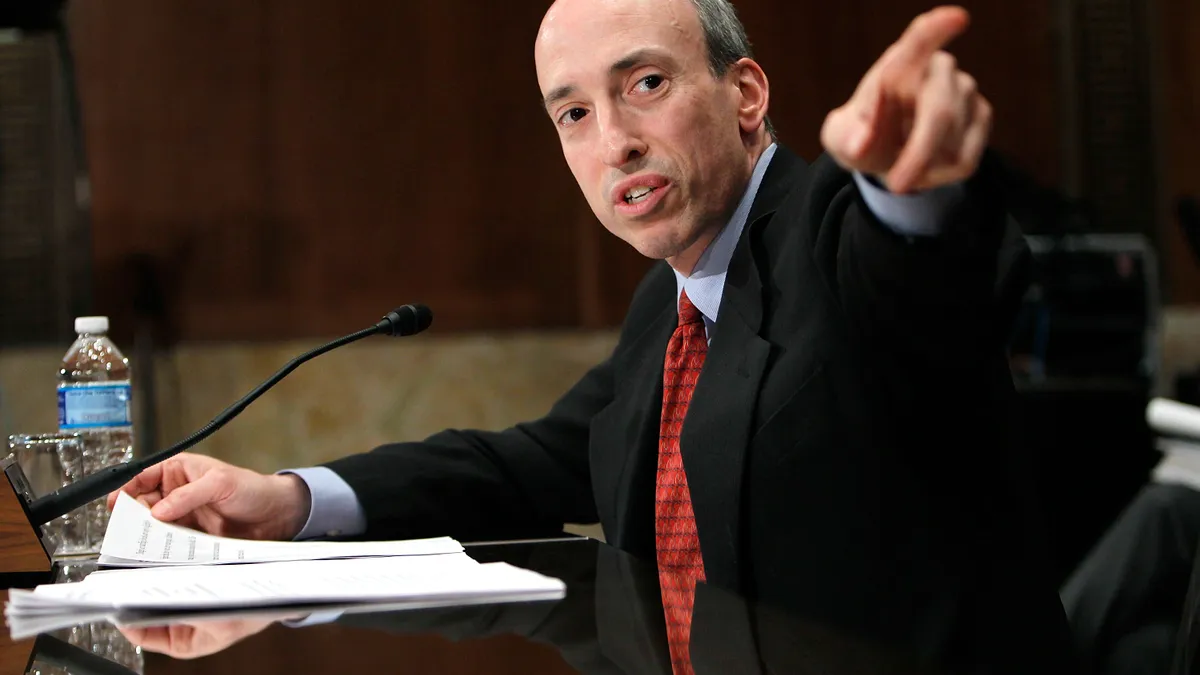Dive Brief:
- Securities and Exchange Commission Chair Gary Gensler said today in a Wall Street Journal interview that he has asked agency staff to consider tightening rules for so-called 10b5-1 plans, which govern how insiders trade in their own company’s stock.
-
Gensler said SEC staff will review whether to set limits on when an executive may cancel a 10b5-1 plan, mandate disclosure requirements regarding the plans, limit the number of plans an executive may adopt and require a “cooling-off period” between when an executive creates a plan and the timing of the first trade.
-
“I asked staff to use all the tools in our toolbox to ensure we are identifying and punishing abuses of these plans,” Gensler said in the interview.
Dive Insight:
Since his swearing-in as SEC chair in April, Gensler has pushed forward with agency reviews in several areas of oversight, including cryptocurrencies, climate change disclosure and special purpose acquisition companies (SPACs).
Gensler said he aims to fix weaknesses in 10b5-1 plans that “have led to real cracks in our insider trading regime.”
Executives can use the plans to shield against allegations that they traded their company stock based on non-public information. While executives are not required to disclose the plans when creating them, some companies provide disclosures to avert criticism that executives are trading on inside information.
“If insiders don’t act in good faith when using such plans, the plans will not offer them an affirmative defense,” Gensler said. He cited research indicating that about 14% of sales in stock involving 10b5-1 plans occur within 30 days of plan adoption.
“Anytime we can increase investor confidence in the market, that’s a good thing,” he said. “It helps both investors but it also helps businesses seeking to raise capital and grow and to innovate.”
Referring to climate change disclosures, Gensler said the SEC intends to ensure that investors can rely on consistent and comparable information.
“Many investors, measured in the trillions of dollars, are asking for more disclosure for their investment decisions around climate risk, both the physical risk and the transitional risks as we move forward in various jurisdictions,” he said.
Gensler also said he believes that the Public Company Accounting Oversight Board (PCAOB) has fallen short as a supervisor of auditors. The SEC last week fired PCAOB Chairman William Duhnke.
“I don’t think that the PCAOB was living up to its potential or mission,” Gensler said, adding he supports “taking a new direction and reinvigorating” the board.














